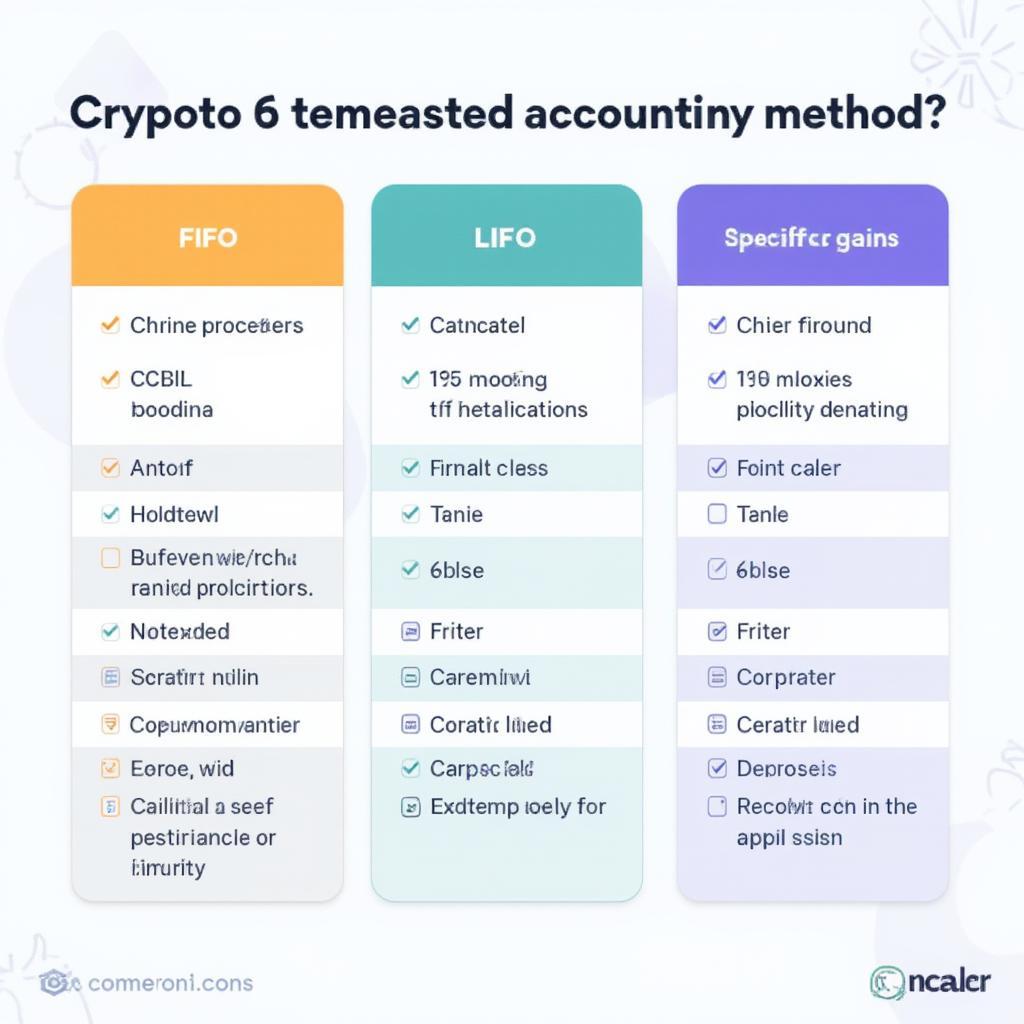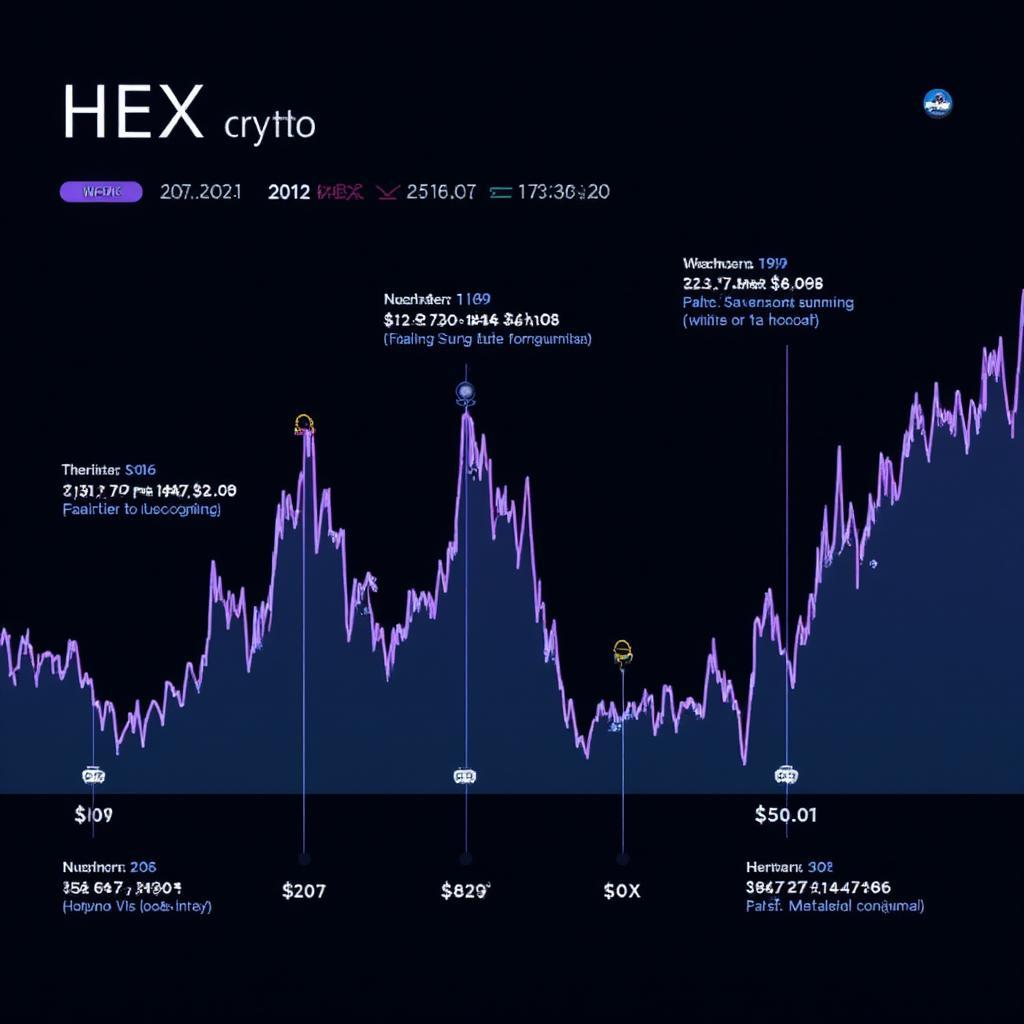Navigating the Complex World of Crypto Tax: A Comprehensive Guide

The rise of cryptocurrencies has brought incredible opportunities but also a complex web of tax regulations. Understanding how Cryptotax works is crucial for any crypto investor or trader to ensure compliance and avoid penalties. This guide will demystify the often-confusing world of crypto taxation, providing you with the essential knowledge to stay on the right side of the law.
Understanding the Basics of Crypto Tax
Cryptocurrency is not taxed as a currency in many jurisdictions but is often treated as property, meaning that each transaction – be it a trade, sale, or even a transfer – can trigger a taxable event. This might feel different from how you typically think about money, and that’s exactly why it’s critical to educate yourself. The tax regulations can vary dramatically based on where you live, so a deep understanding of your local rules is essential.
Key Taxable Events in the Crypto World
What actions cause a tax liability? It’s not as simple as you might think. Here’s a breakdown:
- Selling Crypto: The most obvious taxable event is when you sell your crypto for fiat currency (like dollars or euros). You’ll need to calculate the capital gain or loss.
- Trading One Crypto for Another: Even if you’re not cashing out, swapping one cryptocurrency for another is usually considered a taxable event because you’ve effectively “sold” one asset to acquire another.
- Using Crypto to Buy Goods or Services: Spending crypto like cash at a store is a taxable transaction.
- Receiving Crypto as Income: If your job pays you in crypto, it’s treated as income, subject to income tax.
- Staking and Mining Rewards: Rewards earned through staking or mining are often taxed as income as well.
- Airdrops: Receiving free coins or tokens (airdrops) may be taxable as income, although the valuation at the point of receipt can be complicated.
“It’s imperative for every crypto user to meticulously document all transactions, from the smallest trade to the largest sale. The lack of records can lead to penalties and a lot of stress at tax time,” warns Dr. Eleanor Vance, a specialist in crypto taxation.
Capital Gains vs. Income Tax
One of the biggest hurdles in understanding cryptotax is differentiating between capital gains and income tax:
- Capital Gains Tax: Applies when you sell a capital asset (like cryptocurrency) for a profit. The rate is usually lower than the income tax rate and can vary based on the holding period (short-term vs. long-term).
- Income Tax: Applies to regular income, like your salary, but also to rewards from staking, mining, or being paid in cryptocurrency. This rate is typically higher.
Short-Term vs. Long-Term Capital Gains
Capital gains are usually separated into short-term (assets held for a year or less) and long-term (assets held for over a year). Long-term capital gains generally have more favorable tax rates. The exact threshold varies based on location.
How to Calculate Your Crypto Taxes
Calculating your cryptotax can be a complex process, but it’s important to get it right. You’ll need to keep detailed records and understand some fundamental accounting methods.
Record-Keeping: The Key to Success
This can’t be stressed enough: keeping meticulous records is crucial. Here are essential records you should keep for every crypto transaction:
- Date of the Transaction: When did the transaction happen?
- Type of Transaction: Was it a sale, trade, purchase, or a reward?
- Specific Cryptocurrency Involved: Which crypto was it? (e.g., Bitcoin, Ethereum, etc.)
- Amount of Cryptocurrency: How much crypto was involved?
- Value at the Time of Transaction: The value of the cryptocurrency in fiat currency at the time of the transaction.
- Exchange Details: Where did the transaction occur?
“The biggest mistake I see is people not documenting their crypto activity throughout the year. Waiting until tax time makes the process much harder, and increases the risk of errors,” emphasizes Charles Harrington, a CPA specializing in crypto taxes.
Accounting Methods for Crypto
When you sell or trade, you have to calculate your cost basis (what you originally paid) to determine your profit. The three main methods for calculating that are:
- First-In, First-Out (FIFO): This method assumes that the first units of cryptocurrency you purchased are the first ones you sold.
- Last-In, First-Out (LIFO): This method assumes that the last units of cryptocurrency you purchased are the first ones you sold. Note, this method might not be permitted in some locations.
- Specific Identification: This method lets you choose which specific units of cryptocurrency you sold. This is generally the most flexible but requires extremely accurate tracking.

How to File Your Crypto Taxes
Once you have all your data compiled, you’ll need to file your tax return, which might require using specific tax forms. Tax regulations around crypto are constantly evolving, so it’s vital to keep up with the latest requirements.
Understanding Tax Forms
Depending on your location, there may be specific forms you need to complete and attach to your tax return. This could include:
- Form 8949 (U.S.): Used to report your capital gains and losses from the sale of property, including cryptocurrency.
- Schedule D (U.S.): Used to report the overall summary of capital gains and losses.
- Equivalent Forms in Your Country: Check local tax regulations to find the proper forms in your area.
Using Crypto Tax Software
The complexity of crypto taxation has led to the rise of specialized tax software. These tools can help you by:
- Automatically importing transaction data from various crypto exchanges and wallets.
- Calculating your capital gains and losses using different accounting methods.
- Generating the necessary tax forms.
- Helping you stay compliant with ever-changing rules.
When to Seek Professional Help
While tax software can be helpful, sometimes you may need to seek help from a professional. Consider getting help if you:
- Have complex transactions
- Are unsure about accounting methods
- Are dealing with foreign tax laws
- Feel overwhelmed by the process
Staying Compliant With Crypto Tax
The crypto tax landscape is constantly changing, making it essential to stay informed and proactive. Here’s how:
Keeping Up With Regulations
Tax laws change quickly, particularly regarding emerging technologies like crypto. Regularly review tax publications, government announcements, and trusted sources to stay informed.
Proactive Tax Planning
Rather than scrambling at the last minute, integrate tax considerations into your overall crypto strategy. That could mean:
- Considering holding periods for long-term capital gains.
- Planning trades to mitigate tax implications.
- Consulting with a tax professional for personalized advice.
The Future of Crypto Tax
As crypto becomes more mainstream, tax regulations will likely become more sophisticated. We may see:
- More stringent regulations and reporting requirements.
- Better integration of crypto transactions into existing financial systems.
- Increased use of AI and automation in crypto tax preparation.
“Don’t treat crypto taxes as an afterthought; build it into your strategy. Keeping on top of the rules can drastically reduce your risk of making costly errors,” advises Sarah Chen, an experienced crypto tax consultant.
Conclusion
Navigating the world of cryptotax might seem daunting at first, but with proper knowledge, meticulous record-keeping, and the right tools, it’s entirely manageable. Remember to treat your crypto as a taxable asset and proactively plan your tax strategies. By staying informed and taking a responsible approach, you can enjoy the benefits of crypto without running into trouble with tax authorities.
FAQ on Crypto Tax
What exactly is a taxable event in crypto?
A taxable event in crypto happens when you sell, trade, spend, or receive crypto in a way that can trigger a capital gain or income tax. This includes selling for fiat, swapping between different cryptocurrencies, using crypto to buy goods and services, receiving it as payment, and earning staking or mining rewards.
How are crypto losses treated for tax purposes?
Like capital gains, capital losses are generally included in your yearly tax calculations. Capital losses can be used to offset capital gains, and in many jurisdictions, any excess losses can even be carried forward to future tax years.
Do I have to pay tax when transferring crypto from one wallet to another?
Moving crypto between your own wallets generally isn’t a taxable event if it doesn’t change ownership, but transferring crypto to someone else could be considered a taxable event.
What if I forgot to report some of my crypto transactions?
If you realize you made a mistake, it’s important to correct it immediately. File an amended tax return and be prepared to pay any taxes and applicable penalties. It’s better to be proactive about correcting errors than face penalties later on.
Are NFT’s (Non-Fungible Tokens) taxed the same as cryptocurrencies?
NFTs are typically treated as capital assets, similar to cryptocurrencies, and may be subject to capital gains taxes when sold for a profit. The exact treatment can vary, so it’s best to check your local regulations.
How does staking and mining affect my crypto taxes?
Rewards earned through staking and mining are typically treated as income, which is taxed at your regular income tax rate. The specific rules can depend on where you live, so check local tax regulations.
What tools can I use to make filing my crypto taxes easier?
Several platforms and software solutions are available to track transactions, import data from exchanges and wallets, calculate gains and losses, and generate tax forms. Consider using these specialized tools to simplify the process.




